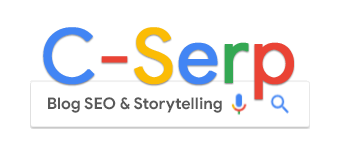There is a growing spam problem in Google AI Overviews

Is there a spam problem in AI Overviews? Yes – and apparently it’s growing.
Don’t believe me? Just ask Google and you’ll get the following response:
Yes, there is a growing spam problem in Google AI Overviews. A recent LinkedIn post highlighted that AI Overviews are easily manipulated, regurgitating content verbatim or hallucinating incorrect information, and that spammers are exploiting this to promote low-quality content.
How AI Overviews are being abused:
- Hallucination and Incorrect Information: AI Overviews often generate answers that are factually incorrect or hallucinate information, even when contradicting accurate data from Google Business Profiles or the Knowledge Graph.
- Spammy Listicles: Spammers are creating listicles that falsely claim a person or company is the “best” in a category, even if hosted on the same website, to exploit AI Overviews’ susceptibility to manipulation.
- Duplication of Content: AI Overviews are prone to duplicating content from other sources, potentially overshadowing original, high-quality content.
- Low-Quality Content: AI-generated content, which can be used to create spammy content, is often flagged as low-quality, potentially leading to a decline in user experience and trustworthiness.
Google’s Efforts to Address the Issue:
- AI Overviews are a core Google Search feature:AI Overviews are integrated directly into Google Search, and users cannot disable the feature.
- Google is actively working on improvements:Google has acknowledged the issue of AI-generated spam and is actively working on improvements to address it.
- Focus on E-E-A-T:Google is focusing on content that demonstrates expertise, experience, authoritativeness, and trustworthiness, which is often lacking in AI-generated material.
Impact on SEO:
- SEO practitioners are concerned: The potential for AI Overviews to be used to promote low-quality content has raised concerns among SEO professionals.
- Google is penalizing spammy content: Google has implemented updates to penalize content made primarily for search engines, which often includes AI-generated pages.
- Focus on user intent: Google is increasingly prioritizing content that aligns with user intent and provides a positive user experience.
The problem. Lily Ray, vice president of SEO strategy and research at Amsive, and one of the top SEO experts in the world, highlighted some of the issues in her LinkedIn post (linked above) – which then got cited by AI Overviews.
What’s happening. SEOs and spammers have figured out how to game AI Overviews – and Google doesn’t seem to have an answer for it yet. The issues:
- Verbatim copying of internet content: Even if it’s outdated or inaccurate.
- Fake authoritativeness: A site can call itself “the best SEO agency,” and Google’s AI may repeat it as fact.
- Manipulative listicles: Self-authored “best of” rankings are being cited as credible sources.
- “Yes, it’s that simple: create an article ranking companies, and call yourself ‘the best.’ AI Overviews will apparently cite you as ‘the best.’” Ray wrote.
Just the beginning. AI Overviews have other glaring issues. For one: incorrect business phone numbers appear in AI Overviews, even when Google Business Profiles have the right info. At a recent Search Central meetup, Google reportedly had no answer for this.
Why we care. Since launching AI-generated answers in search results, Google has downplayed the risks, labeling AI Overviews as “experimental.” But countless examples shared on LinkedIn and elsewhere show that AI Overviews are flawed and failing searchers. Google needs to stop elevating low-quality, biased content — even spam – in AI Overviews.
Bottom line. As Ray put it:
- “This type of spam should not be working in AI Overviews. In fact, if anything, the fact that any of this works shows how fundamentally flawed AI Overviews are – Google is apparently not using any type of fact-checking or consensus mechanism to generate or verify its answers – apparently, they’re just repeating what any random, spammy website or 10-year old Reddit or Instagram post has said about something, despite its accuracy. It is mind-boggling to me that the same company that pushed so hard to encourage site owners to think about E-E-A-T is elevating problematic, biased and spammy answers and citations in AI Overview results.”
The screenshot. Here it is:



